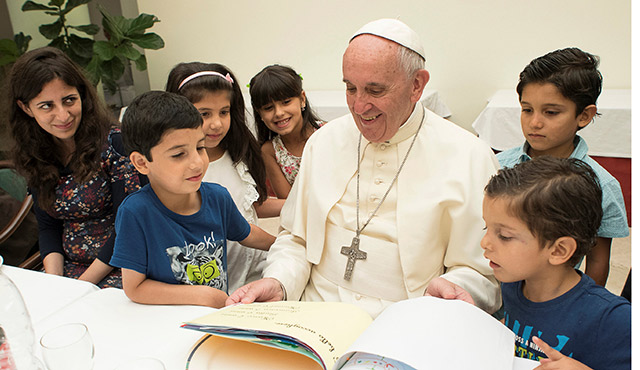‘What do you want to be when you grow up?’ is the age-old question asked of children beginning as early as preschool. The question is given more serious thought and discussion as young people approach high school and begin to think about the next steps after graduation, with the guidance of their parents and teachers. However, the challenge for some parents is how to help their children apply their faith to the process of discernment.
Katie Dawson, the Diocese director of Parish Faith Formation, uses a simple equation to illustrate this process:
DESIRE + ability/competence/qualifications/talent + opportunity/open door = guidance toward God’s will in your life.
“This perspective is a profoundly Catholic one that recognizes the Word of God in planting desires in our hearts and giving us the abilities, talents and skills and then the charism to do this,” Dawson says.
“A lot of times, people will talk about the word ‘discernment’ when we are thinking about God’s plan for our lives and sometimes we limit that to the question of whether or not someone is going to be a priest or religious,” Dawson explains. “But really, God has a call in each of our lives that we can identify by reflecting on what we are good at, what we really long for, what excites us, and we take those things and start looking for the opportunities to use them.”
She says that for young people who are determining where they are going to go to school and what they are going to study, the “open door” they are looking for is the ability to increase their competency in the area that interests them.
To help kids navigate the process beyond the primary mentorship of their parents, young people can also reach out to mentors who they cross paths with often, such as teachers, aunts, uncles, sports coaches, school counselors, priests, religious, or community leaders. A recent survey demonstrated that the parish community can also make an impact in the process as well. The Barna Group, an evangelical Christian polling group based in Ventura, conducted a study between 2007 and 2012 on the topic of faith and the millennial generation. It found that 45 percent of young adults who remained active in their church after high school better understood their purpose in life through church, while 12 percent of young adults who were no longer active felt similarly. Also, 45 percent of active young adults learned to view their gifts and passions as part of God’s calling, compared to 17 percent of inactive young adults who say the same. In addition, 29 percent of active young adults learned how the Bible applies to their career interests, while only seven percent of inactive young adults agreed with the idea. Although the survey research does not prove causation, it does reveal a great deal about the millennial generation and how they integrate faith and life.
Dawson, who has raised five children of her own, with her youngest son just graduating college, offers another tip for parents.
“Exposing them to many different people and work paths, was something we always tried to do so that they had real life examples of people who had different kinds of careers and not just what their parents did,” she said. “If a parent is particularly proactive in getting their kid out to look at different vocations, all the better.”

